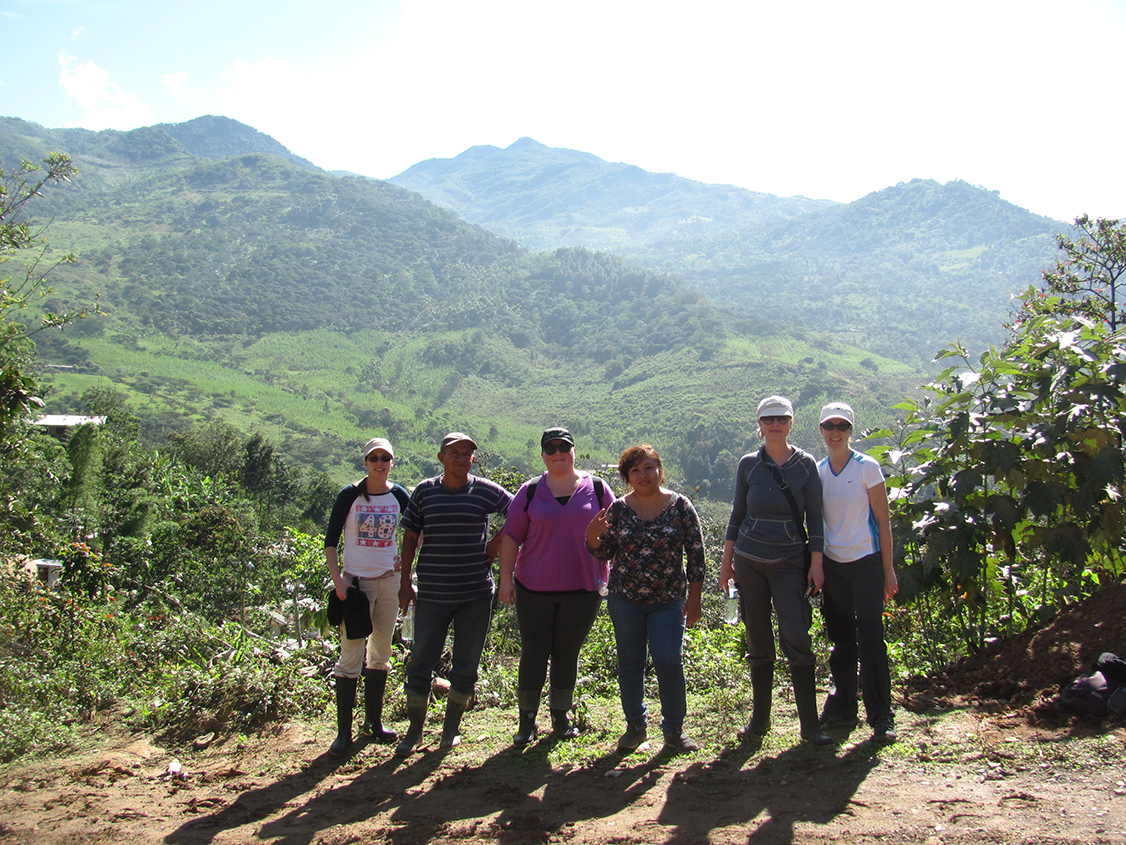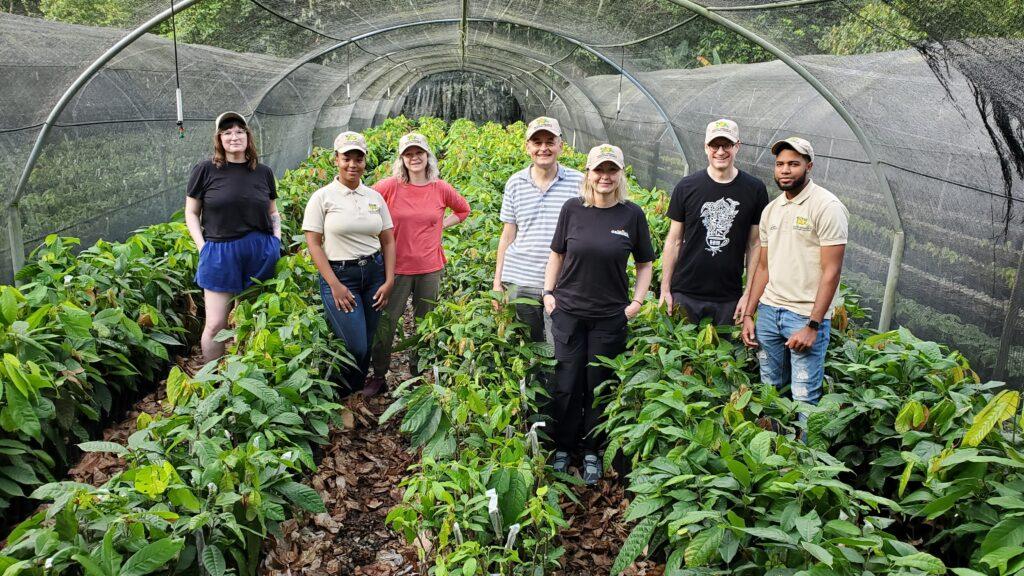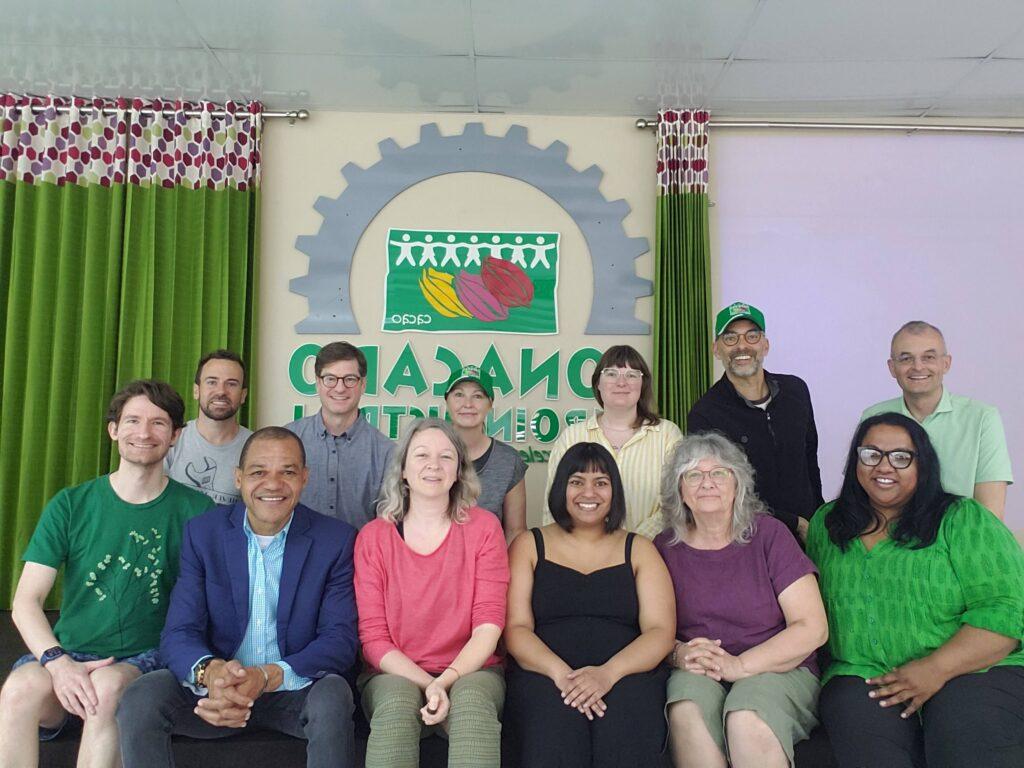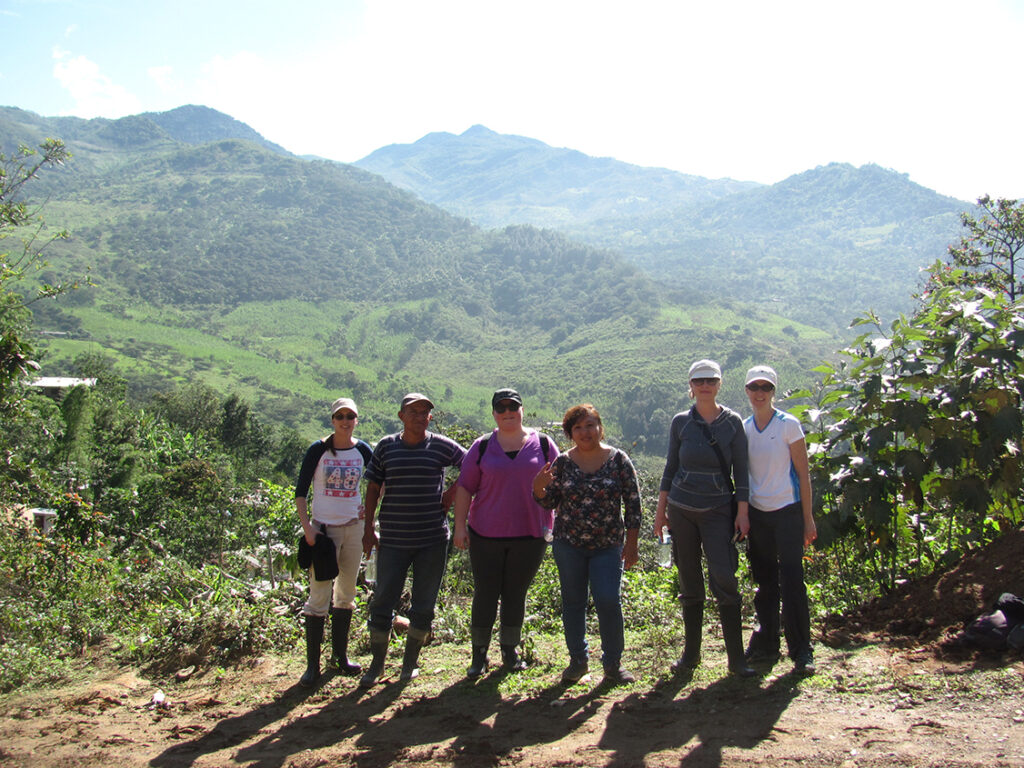
Fairtrade month is extra special for Camino and La Siembra Co-operative this year. For over 15 years, we have been working directly with democratically organized groups of small-scale farmers. Our work as authentic, 100% fair traders has not wavered since we pioneered fair trade cocoa and sugar in Canada in 1999.
So as we celebrate national fair trade month, it seems only fitting to celebrate the small-scale family farmers and co-operatives who work hard to grow and harvest the ingredients for our delicious Camino products. One of those co-operatives is Co-op Norandino (formerly CEPICAFE), who we recently visited in Northern Peru. The producer farmers of Co-op Norandino are the inspiration and creators of Camino’s deliciously popular Muscovado organic whole brown sugar in our Cuisine Camino baking line, which was introduced in 2009.
This past January, five La Siembra worker-owners spent several days in Piura and Montero, Peru, with our Co-op Norandino account manager Yeny. We toured Norandino’s headquarters, which includes offices and their sugar packaging facility then we set about our journey to the hills of Montero where the sugar cane grows and is harvested.
We were extremely fortunate to meet several of those proud farmers and even spent two nights in their homes. One day was spent in the coffee fields, learning about their shade-grown organic agricultural practices and the challenges they face with climate change and disease. A second day involved walking several kilometres to a sugar cane processing module and participating in almost every step of sugar cane production.
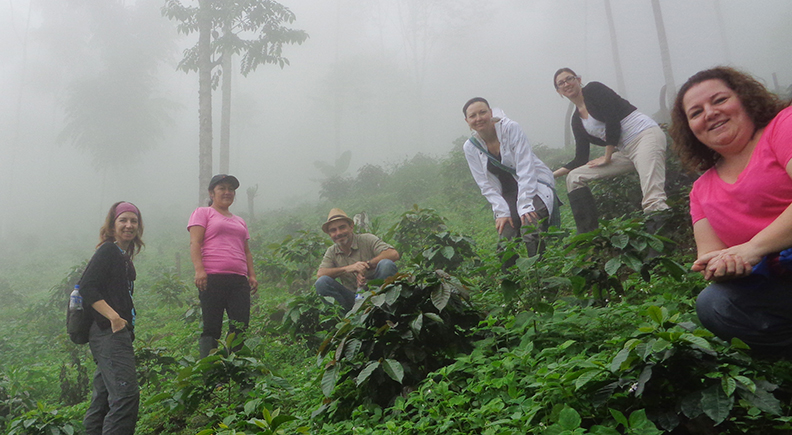
La Siembra worker-owners Jennifer, (Sylvia), Martin, Kelly, Josiane, Isabel in a coffee field in Monterro, Peru
Here we met Norandino technicians Sylvia and Willy, and producers Lelo and Roberto who each have parcels of land for both sugar cane and coffee. By diversifying their crops, Lelo, Roberto and many other producers can balance the demands of their work, the risks as well as revenue streams.
Roberto’s day began in the early hours, cutting and hauling the sugar cane by mule to the processing module. His children were helping because it was winter break and school was closed for two months. Their job was to guide the mule up the hill with his load. The mule would need to make 20 trips to the module to yield 4 quintales (400 lb/180 kg)of finished brown sugar. When asked how they felt about helping out, the children said it was fun and their dad stated he was happy to have them outside doing chores rather than sitting in front of the TV (that sounded familiar to us!).
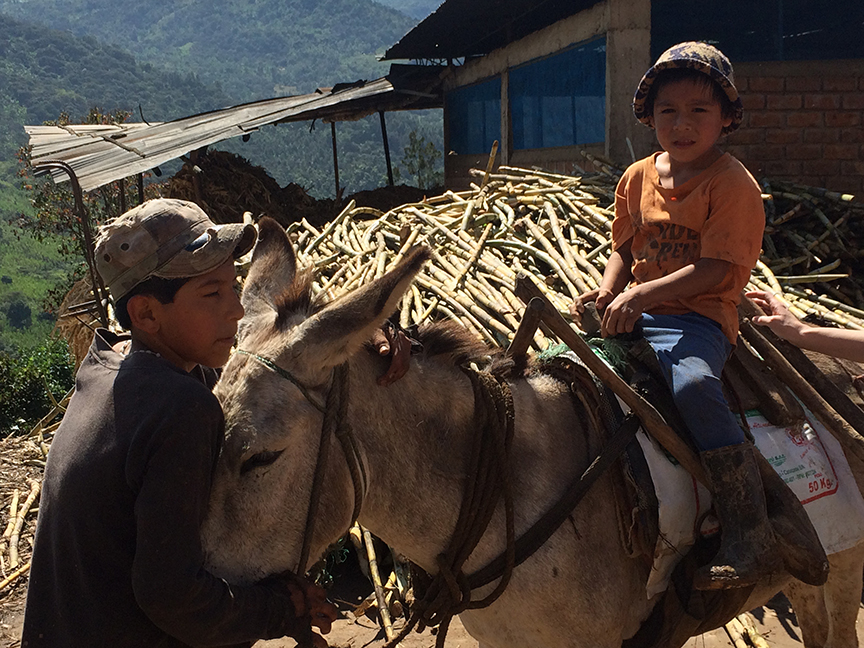
We observed Roberto work every step of the process, including pressing the sugar cane into juice and spending several hours boiling, raking and cooling the delicious sweet fruits of his labour. He was meticulous and very proud, allowing us the chance to assist.
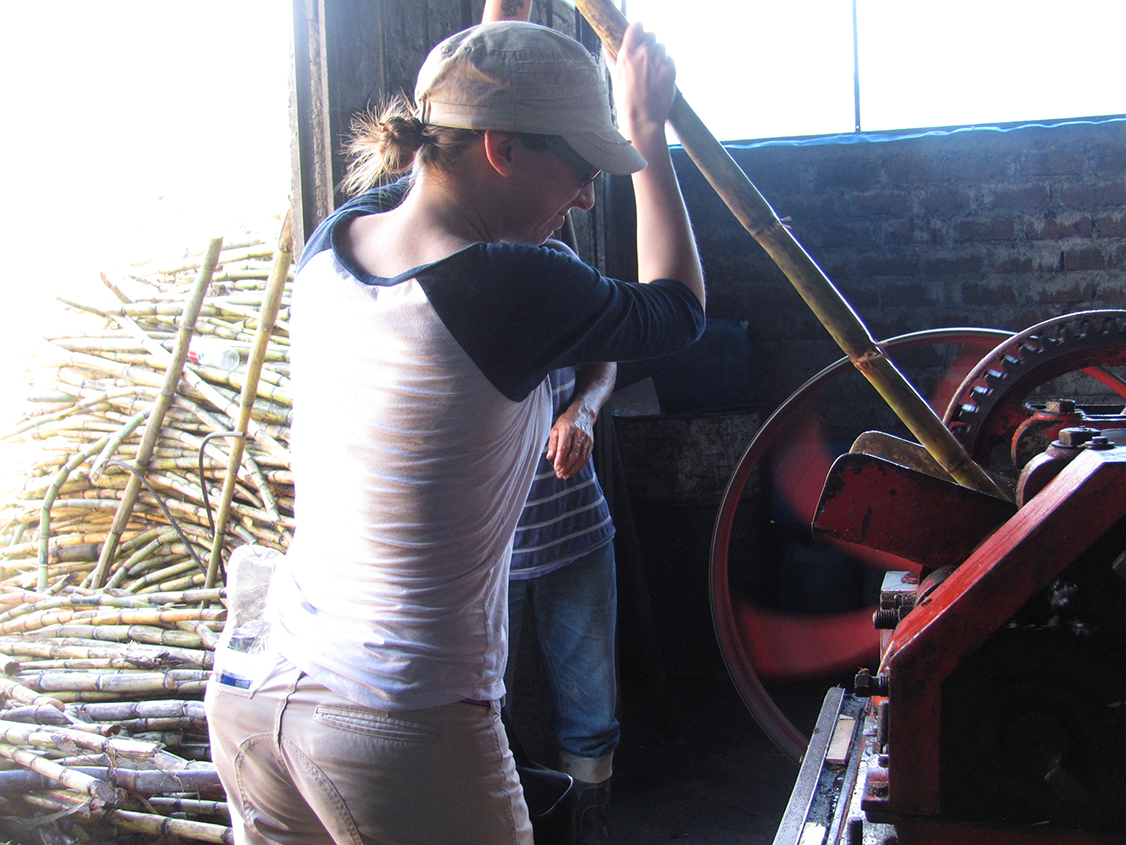
We learned that Roberto is one of the most successful and highest yielding sugar cane producers in the area. He follows the module’s schedule that indicates which producer is booked to process on which days. During harvest season, he spends a couple of days a month for 8 months to turn his sugar cane into the rich finished product locally known as panela. In winter Roberto will maintain his sugar crops by removing the dry shoots and leaves to keep it healthy and optimal; weeding takes place in rainy season. Roberto will earn 20 soles (about CAD7.70) per quintale (45 kg) more for his organic panela than he would if it were not organic.
Norandino Technicians Willy and Sylvia are there to assist with the process and monitor the pH and humidity levels of the processing sugar. They are each responsible for 2 modules in the area, and complete all of the registrations and paperwork. When asked about the use of fair trade premiums, they pointed to the floors in the module where we were standing. The farmers in this area will be using the fair trade premium to paint and improve floors that have been eroded from hot liquid sugar. It is a decision made by the users of the module, an example of their democratic process within the co-operative.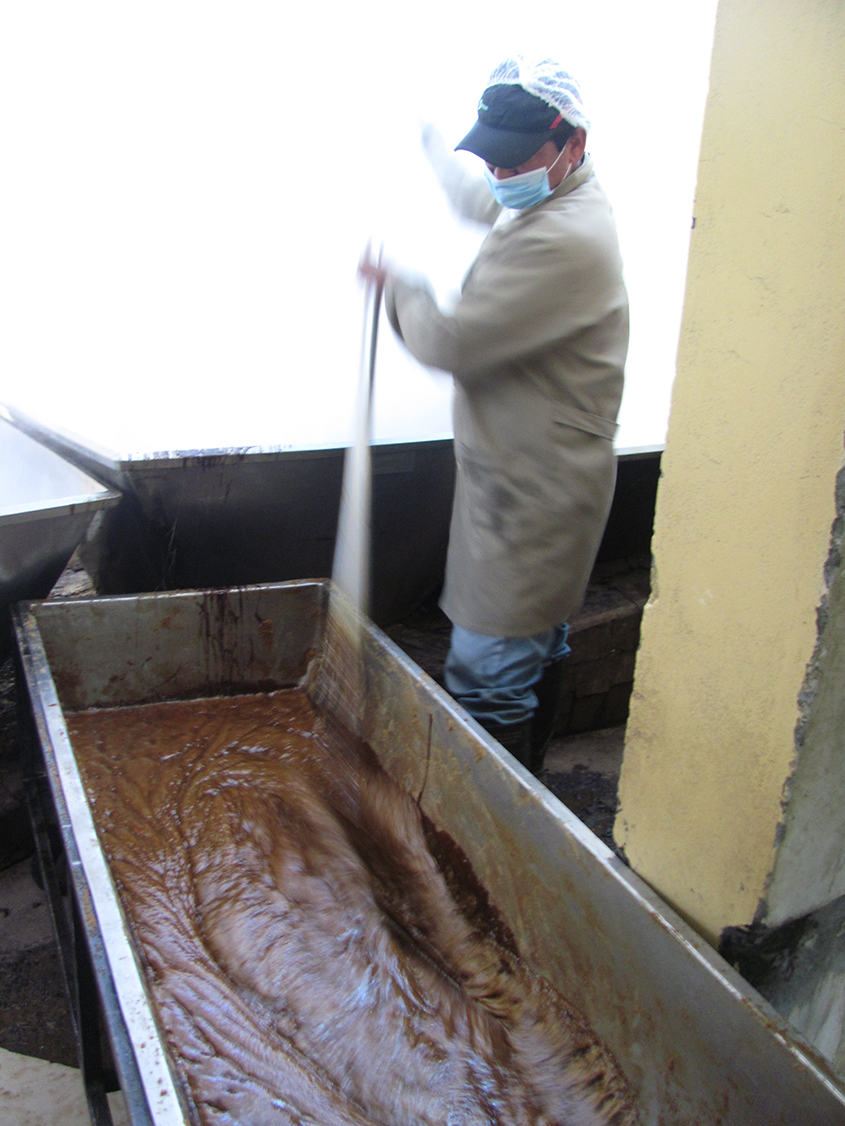 Producer Roberto works every step of his sugar cane production, including pressing the sugar cane into juice and spending several hours boiling, raking and cooling the delicious sweet fruits of his labour
Producer Roberto works every step of his sugar cane production, including pressing the sugar cane into juice and spending several hours boiling, raking and cooling the delicious sweet fruits of his labour
the final step of Roberto’s sugar production is bagging and getting it ready for transport to Norandino’s packaging facility in Piura. The bag is marked with the producer’s name, module number, lot code and organic credentials. Roberto will be paid by bag of finished sugar
By 1 pm, Roberto has worked a full day and invites La Siembra to join the group at his home. Over a generous lunch, cold beverages and rich conversation, Roberto has a few parting words:“Our vision is to improve productivity, planting more cane, producing more, you could say getting a better harvest. If we harvest 200 bags this year, well, next year let’s get 200 more than that. That’s the vision of moving forward. And thanks to you, brother, that you are here participating in that with us. It’s good you’re here, sorry it’s not fancy, but know that if you like it, this house is your house.”
written by Jennifer Alldred
Camino’s Muscovado whole brown sugar is grown by small-scale farmers in Peru and is minimally processed to maintain all the natural goodness of raw sugar cane. Compared to conventional sugar, which is harvested on plantations, processed in large plants or North American refineries, and is processed to remove all molasses and nutritional value. Often a bleaching agent is added to make conventional sugar white, and a low-grade molasses sauce is poured back over the sugar to be marketed as brown sugar.
